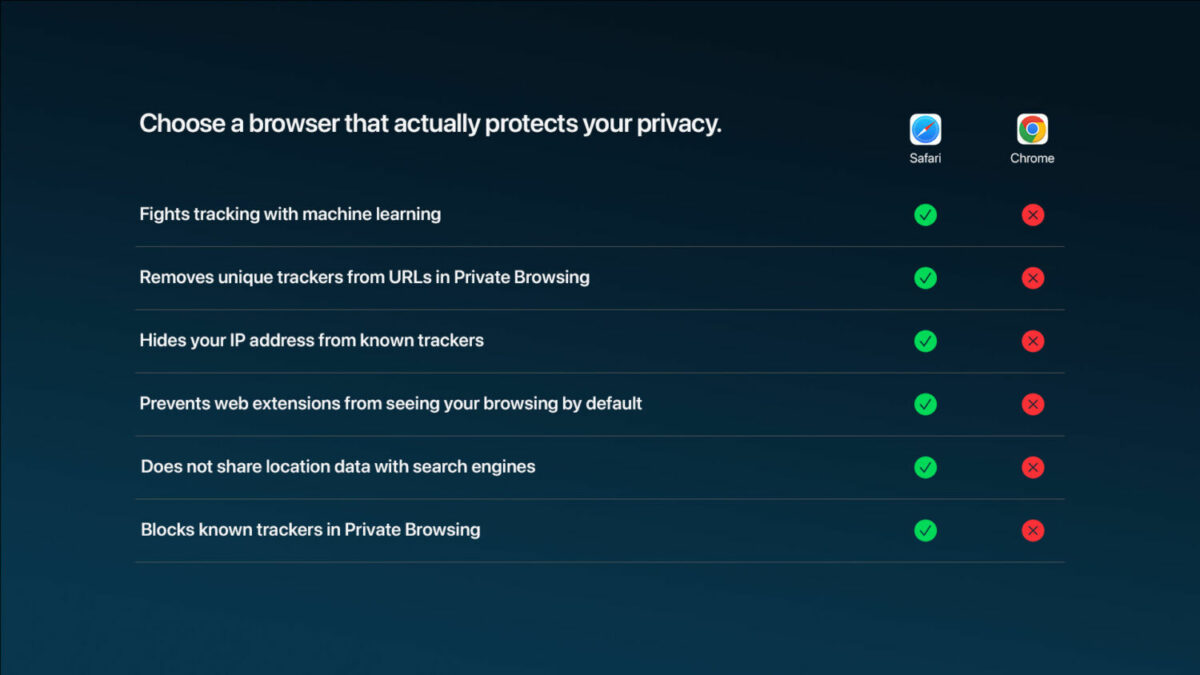Apple has recently released a short film aimed at increasing public awareness about the pervasive nature of online tracking, highlighting the vulnerabilities present when browsing with various web browsers. This educational film is part of Apple’s ongoing effort to advocate for greater online privacy and inform users of the protective measures available through their Safari browser.
The film outlines several concerning behaviours associated with other browsers, which include tracking users across multiple websites, unauthorised collection of location data, invasions of privacy through web extensions, and the limited effectiveness of private browsing modes.
In contrast, Safari offers a suite of robust privacy features designed to safeguard user information actively:
- Cross-Site Tracking Prevention: Apple has been a leader in privacy innovation, being the first to block third-party cookies in 2005 and moving to block all third-party cookies by 2019. The company introduced Intelligent Tracking Prevention, which utilizes machine learning to detect and block trackers aggressively. This technology not only blocks known trackers but also purges tracking data to prevent companies from building profiles based on user behavior.
- Location Data Protection: Safari stands out by not sharing location data with search engines, which is a common practice in other browsers. It provides users with precise control over their location data, only sharing it upon explicit user approval and for a limited duration, ensuring that such sensitive information is guarded against unauthorized use.
- Privacy-Preserving Web Extensions: Safari supports a range of web extensions while ensuring comprehensive user privacy. Before enabling an extension, Safari informs users about the data the extension will access. Users can then restrict this access to certain websites or for limited periods, thereby maintaining control over their personal data.
- Enhanced Private Browsing: Safari was the pioneer of Private Browsing, and it has continuously evolved to offer robust protections against modern privacy threats. Beyond local privacy measures, Safari’s Private Browsing now aggressively counters trackers and removes trackers from URLs to prevent link tracking. Advanced fingerprinting protections disrupt trackers’ attempts to identify users based on their device configurations.
- Innovations Against Fingerprinting: To combat fingerprinting, Safari presents a simplified version of the system configuration to websites. This approach makes it difficult for data companies to single out individual devices for tracking, providing a significant privacy shield for users.
- Commitment to Continuous Improvement: Apple consistently updates Safari’s privacy features, responding to emerging threats and exploiting new technologies to enhance user privacy. Each update aims to fortify the protections that keep users’ data private and secure from unauthorized access and tracking.

As part of its broader commitment to user privacy, Apple ensures that Safari users can browse with confidence, knowing that their personal information remains protected. These efforts place Apple at the forefront of privacy protection in the tech industry, setting a high standard for what private browsing should entail.
For detailed information about all the privacy features Safari offers, users are encouraged to visit Apple’s official website or explore the Safari Privacy Report, where they can see a comprehensive list of the tracking attempts blocked by the browser. This transparency and commitment to user privacy underline why Safari continues to be a leader in secure browsing.













